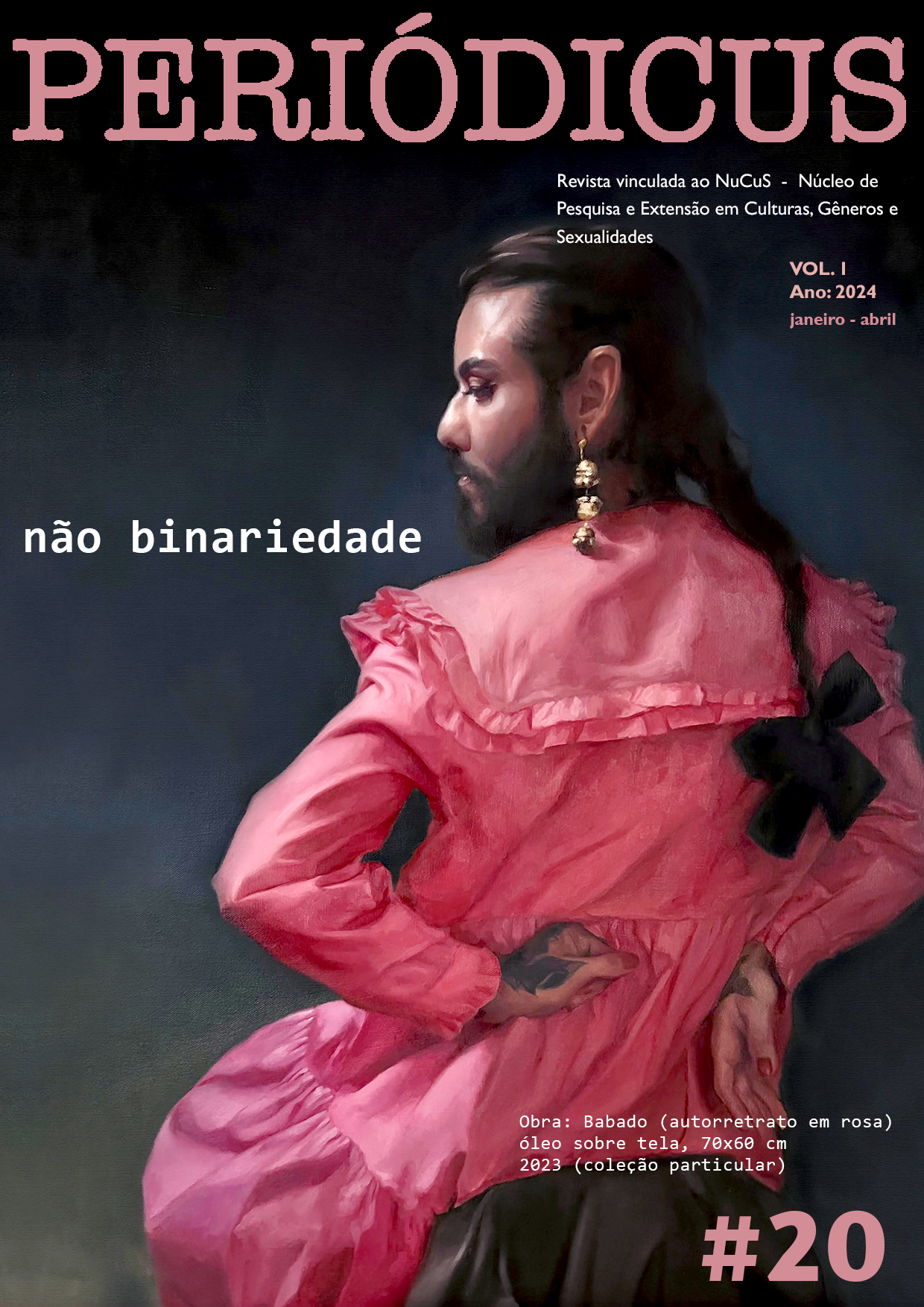“Pane no cistema”
discussing non binarity and trans protagonism on social media”
DOI:
https://doi.org/10.9771/peri.v1i20.54801Abstract
The present article analyze five profiles of the social network instagram with content production about the Non Binary community. The profiles used were: Coletivo Trans Não-Binárie (@coletivotransnaobinarie), Rexistência Não Binária (@rexistencianaobinaria), Ser Não Binário (@sernaobinario), Nick Nagari (@nicknagari) e Mar Facciolla (@mardemar.nb); all of them analyzed between 2021-2022. I understand that the articulation of this movement has created its escape routes, subverting the traps of the CIStem and breaking, with which they break, through to trans protagonism through the networks. Here, I debate to what extent we have managed to cross history with non binarity, understanding the disputes that exist in the narratives and discourses for us to build non binary histories or a History of non binarity in Brazil. I use the theoretical contributions of Cristiane Dias (2018), Maria Lugones (2014), Guacira Lopes Louro (2004), Megg Rayara Gomes de Oliveira (2020), Jota Mombaça (2021), Letícia Nascimento (2021), and Fernando Seffner (2021), linked to Autobixography (THALLYS MANN, 2020) as a methodological tool and to my writing as a non binary person. Therefore, I aim to contribute to the historiographical field of trans studies in our country.
Downloads
Downloads
Published
How to Cite
Issue
Section
License
Copyright (c) 2024 HBlynda Morais

This work is licensed under a Creative Commons Attribution-NonCommercial 4.0 International License.
Autores que publicam nesta revista concordam com os seguintes termos:
Autores mantêm os direitos autorais e concedem à revista o direito de primeira publicação, com o trabalho simultaneamente licenciado sob Licença Creative Commons Attribution Noncommercial que permite o compartilhamento do trabalho com reconhecimento da autoria e publicação inicial nesta revista, sendo vedado o uso com fins comerciais.
Autores têm autorização para assumir contratos adicionais separadamente, para distribuição não-exclusiva da versão do trabalho publicada nesta revista (ex.: publicar em repositório institucional ou como capítulo de livro), com reconhecimento de autoria e publicação inicial nesta revista.
Autores têm permissão e são estimulados a publicar e distribuir seu trabalho online (ex.: em repositórios institucionais ou na sua página pessoal) a qualquer ponto antes ou durante o processo editorial, já que isso pode gerar alterações produtivas, bem como aumentar o impacto e a citação do trabalho publicado (Veja O Efeito do Acesso Livre).







